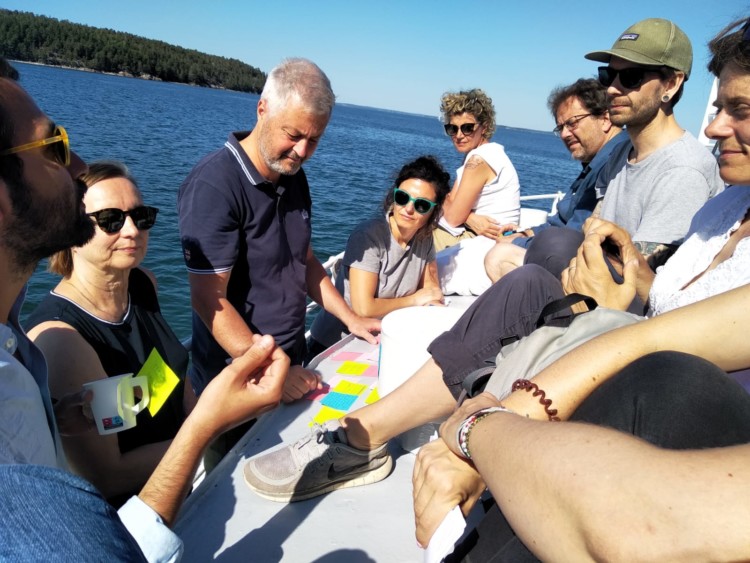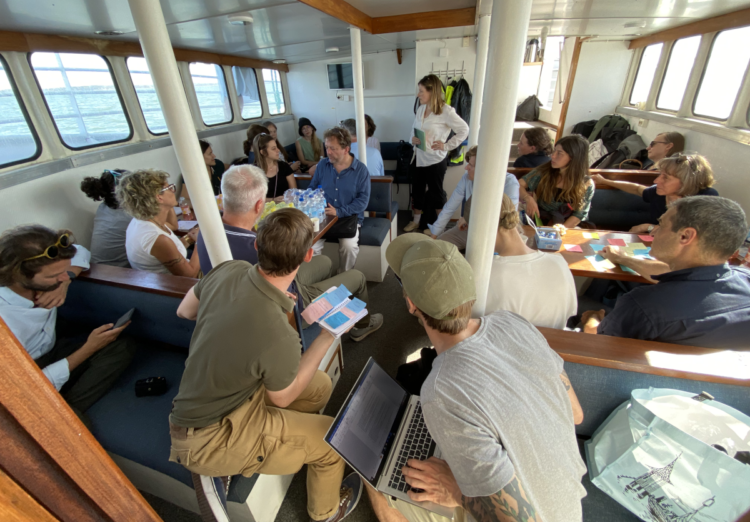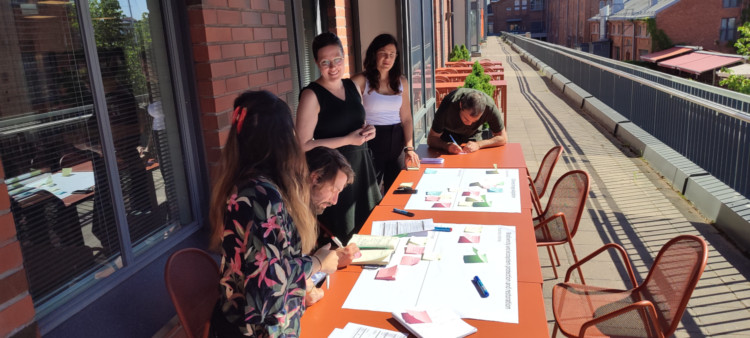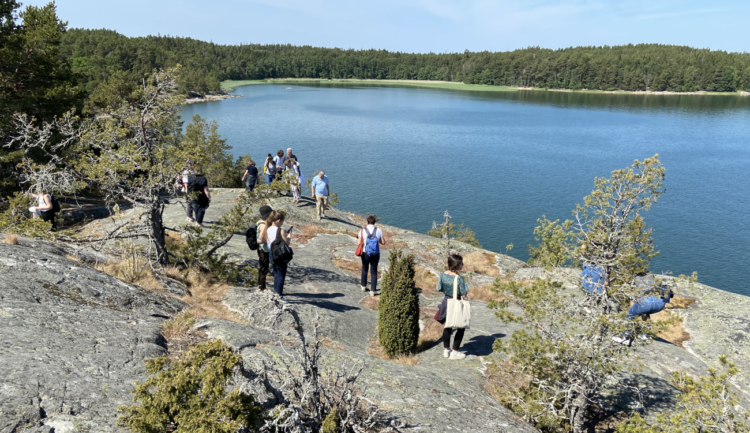Maritime spatial planning as an enabler of the European Green Deal? Sharing experiences across Europe
Maritime spatial planning experts from seven countries from every European sea basin gathered in sunny Turku on the 19th to 20th of June 2023 to share their experiences on how maritime spatial planning could work as an enabler of the European Green Deal. The two days of active group work created an excellent opportunity for peer learning and ideas for the second round of maritime spatial planning in Finland. The Archipelago Sea provided an inspiring environment for the work.
During the spring of 2023, the MSP-GREEN project has been looking at how existing maritime spatial plans consider the objectives of the European Green Deal. “In Finland, we interviewed maritime spatial planners from all coastal regional councils and the Ministry of the Environment to gain more insight on the subject. It is worth noting that Finland’s current maritime spatial plan was largely prepared before the Green Deal was published. Despite this, several themes are already central to the plan today,” says Vesa Arki, project planner for MSP-GREEN.

On the first day, the focus was on the similarities and differences in maritime spatial planning between the countries. The discussions took place on the island of Seili and on-board M/s Norrskär on the journey across the Archipelago Sea. “It was a great opportunity to invite the project partners to the Turku archipelago. The Archipelago Sea offered not only memorable experiences but also an excellent environment to discuss how maritime spatial planning is context dependent. This means that the ways in which it supports the objectives of the Green Deal are also different,” says Heikki Saarento, Planning Director at the Regional Council of Southwest Finland.

On the second day, at the premises of the Regional Council of Southwest Finland, the discussions were structured around seven themes identified from the European Green Deal as key elements for maritime spatial planning. The themes are:
- Climate change mitigation and adaptation
- Sustainable sea-food production
- Biodiversity and ecosystem protection and restoration
- Blue circular economy
- Zero pollution
- Fair and just transition
At the end of the day, the project partners reflected in country groups on how the different themes interact spatially. The 3D mapping exercise, which was also used during the first round of Finnish maritime spatial planning, helped to build an understanding of the socio-ecological context created by the different marine activities. Special focus was put on the interaction between land and sea. This approach led to reflections on how maritime spatial planning should consider parallel processes and activities at sea and promote their coordination to contribute to the objectives of the Green Deal. The method attracted the interest of the participants and may be applied elsewhere in Europe as part of maritime spatial planning in the future.


Although the challenges and settings for maritime spatial planning are very different around Europe, there are valuable lessons to be learned from the international cooperation for national planning. The results will be reported in the autumn and, in addition to the English report, summaries of the results will be published in Finnish and Swedish. “I think we will be able to produce some interesting results when we combine the country-specific analyses with the ideas we developed together in the workshop. The work has provided a solid basis for the discussions on the role of the European Green Deal in the second round of maritime spatial planning in Finland”, says Arki.

The workshop was a part of the MSP-GREEN project, funded by the European Maritime, Fisheries and Aquaculture Fund. The project will run from November 2022 to October 2024.
Project website: https://mspgreen.it/
Twitter: @MSPGREEN22

